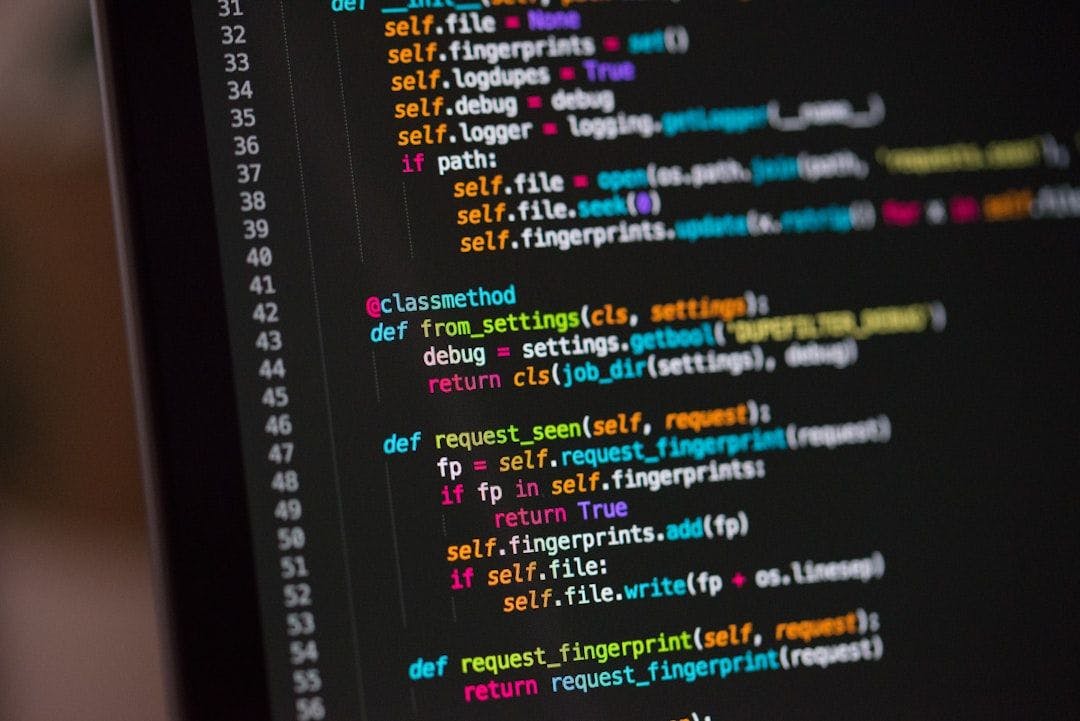When building applications with Docker, managing environment variables across different environments can be tricky. Here’s a clean, practical approach we’ll demonstrate with a real FastAPI application that keeps development smooth while ensuring production deployments are secure.
The Problem We’re Solving
Most developers start with a simple setup that works locally but creates problems in production:
# This works locally but causes issues in production
version: '3.8'
services:
my-app:
build: .
env_file: .env # This will override production env vars!
Problems:
.envfile overrides production environment variables- Sensitive data accidentally gets deployed
- Production servers can’t inject their own configuration
Our Solution: Clean Separation with Docker Compose
We’ll build a FastAPI application that demonstrates the right way to handle this.
The Application Structure
fastapi-docker-env-demo/
├── main.py # FastAPI application
├── requirements.txt # Dependencies
├── Dockerfile # Production-ready container
├── docker-compose.yml # Base config (production-ready)
├── docker-compose.override.yml # Development overrides
├── .env # Local development variables
└── .env.production.example # Production reference
Step 1: FastAPI Application with Environment Config
main.py:
import os
from fastapi import FastAPI
import uvicorn
from dotenv import load_dotenv
# Load environment variables from .env file if it exists
load_dotenv()
app = FastAPI(
title="Docker Environment Demo",
description="Demonstrating Docker environment variable best practices",
version="1.0.0"
)
# Environment configuration with sensible defaults
class Config:
# Application settings
APP_NAME = os.getenv("APP_NAME", "Docker Environment Demo")
ENVIRONMENT = os.getenv("ENVIRONMENT", "development")
DEBUG = os.getenv("DEBUG", "false").lower() == "true"
HOST = os.getenv("HOST", "0.0.0.0")
PORT = int(os.getenv("PORT", "8000"))
# Database settings
DATABASE_URL = os.getenv("DATABASE_URL", "sqlite:///./dev.db")
# API settings
API_KEY = os.getenv("API_KEY", "dev-api-key-12345")
SECRET_KEY = os.getenv("SECRET_KEY", "dev-secret-key")
# Third-party services
REDIS_URL = os.getenv("REDIS_URL", "redis://localhost:6379")
EMAIL_SERVICE_URL = os.getenv("EMAIL_SERVICE_URL", "https://api.dev-email-service.com")
# Feature flags
ENABLE_CACHING = os.getenv("ENABLE_CACHING", "true").lower() == "true"
ENABLE_ANALYTICS = os.getenv("ENABLE_ANALYTICS", "false").lower() == "true"
config = Config()
@app.get("/")
async def root():
"""Welcome endpoint with basic app info"""
return {
"message": f"Welcome to {config.APP_NAME}!",
"environment": config.ENVIRONMENT,
"debug": config.DEBUG,
"version": "1.0.0"
}
@app.get("/env")
async def get_environment_variables():
"""Shows all environment variables currently loaded by the app"""
return {
"APP_NAME": config.APP_NAME,
"ENVIRONMENT": config.ENVIRONMENT,
"DEBUG": config.DEBUG,
"HOST": config.HOST,
"PORT": config.PORT,
"DATABASE_URL": config.DATABASE_URL,
"API_KEY": config.API_KEY,
"SECRET_KEY": config.SECRET_KEY,
"REDIS_URL": config.REDIS_URL,
"EMAIL_SERVICE_URL": config.EMAIL_SERVICE_URL,
"ENABLE_CACHING": config.ENABLE_CACHING,
"ENABLE_ANALYTICS": config.ENABLE_ANALYTICS
}
if __name__ == "__main__":
uvicorn.run(
"main:app",
host=config.HOST,
port=config.PORT,
reload=config.DEBUG,
log_level="debug" if config.DEBUG else "info"
)
Step 2: Production-Ready Docker Configuration
Dockerfile:
FROM python:3.11-slim
WORKDIR /app
# Install dependencies
COPY requirements.txt .
RUN pip install --no-cache-dir -r requirements.txt
# Copy application
COPY . .
# Security: non-root user
RUN adduser --disabled-password appuser && chown -R appuser /app
USER appuser
EXPOSE 8000
CMD ["python", "main.py"]
docker-compose.yml (Production-ready base):
version: '3.8'
services:
fastapi-app:
build: .
image: fastapi-env-demo:latest
container_name: fastapi-env-demo
ports:
- "8000:8000"
environment:
- PYTHONPATH=/app
restart: unless-stopped
Step 3: Development Override Configuration
docker-compose.override.yml (Development additions):
version: '3.8'
services:
fastapi-app:
env_file:
- .env
environment:
# Override for development
- ENVIRONMENT=development
- DEBUG=true
volumes:
# Enable hot reload in development
- .:/app
command: ["uvicorn", "main:app", "--host", "0.0.0.0", "--port", "8000", "--reload"]
Step 4: Environment Variable Files
.env (Local development):
# Development environment variables
APP_NAME=Docker Environment Demo
ENVIRONMENT=development
DEBUG=true
HOST=0.0.0.0
PORT=8000
# Database settings
DATABASE_URL=sqlite:///./dev.db
# API settings
API_KEY=dev-api-key-12345
SECRET_KEY=dev-secret-key-for-local-development
# Third-party services
REDIS_URL=redis://localhost:6379
EMAIL_SERVICE_URL=https://api.dev-email-service.com
# Feature flags
ENABLE_CACHING=true
ENABLE_ANALYTICS=false
.env.production.example (Production reference):
# Set these on your production server
APP_NAME=My Production API
ENVIRONMENT=production
DEBUG=false
DATABASE_URL=postgresql://user:pass@db:5432/prod
API_KEY=your-production-api-key
SECRET_KEY=your-super-secure-production-secret
REDIS_URL=redis://redis:6379
EMAIL_SERVICE_URL=https://api.your-email-service.com
ENABLE_CACHING=true
ENABLE_ANALYTICS=true
How It Works
Local Development Workflow
# Simply run this - Docker Compose automatically merges the files
docker-compose up --build
What happens:
- Loads base
docker-compose.yml - Automatically merges
docker-compose.override.yml - Loads your
.envfile viaenv_filedirective - Enables hot reload and debug mode
- Mounts source code for live editing
Production Deployment
# Deploy using only the base configuration docker-compose -f
docker-compose.yml up -d --build
then using .env.production.example file in the production environment.For example we are deploying to Digitalocean app platform that is using docker registry. you should connect to the docker registry, tag you images like the following then push.
docker tag <image-name>:<tag> <registry-url>/<reg-name>/<image-name>:<tag> docker push <registry-url>/<reg-name>/<image-name>:<tag>
in Digitalocean app platform, you can bluk load the env variables by going to settings, then in the “App-LevelEnvironment Variables” section choose “Bulk Editor” like here:
and here you go, let test now
Testing Your Setup
The /env endpoint makes it super easy to verify your configuration:
Development Test
curl http://localhost:8000/env
Response:
Production Test
curl http://your-server:8000/env
For example you deploy to Digitalocean app platform that is
Response:
Quick Start
- Clone the project
- Start development:
docker-compose up --build - Visit: http://localhost:8000/env to see your configuration
Conclusion
This approach gives you the best of both worlds:
- Easy local development with automatic
.envloading - Clean production deployments that respect server environment variables
- Same Docker image works in all environments
- Simple testing with the
/envendpoint
The key insight: Keep your base docker-compose.yml production-ready, and use override files for development conveniences.
This pattern scales from simple applications to complex microservices and works with any deployment platform. Your development team gets a smooth workflow, and your production deployments stay secure and maintainable.
The complete working example is available as a FastAPI application that demonstrates all these concepts in action.


